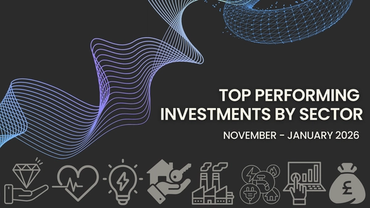Home • Articles • Seeking to identify great businesses with great growth potential: Meet the Mid Wynd board of directors
Seeking to identify great businesses with great growth potential: Meet the Mid Wynd board of directors
By Boring Money
26 Nov, 2024
This content is a paid promotion and has been created in collaboration with Lazard. It is an advertorial designed to promote Mid Wynd International Investment Trust plc. While we strive to ensure the information provided is accurate and relevant, it reflects the views and messaging of the sponsor.

Established in 1981, Mid Wynd International Investment Trust plc (Mid Wynd) is an investment trust that revolves around the “global quality growth” philosophy, scouring markets around the world with the aim of uncovering promising businesses with substantial growth potential.
The trust’s goal is to identify great businesses, buy their shares at the right price and own the shares for a long time. The board of directors plays a key role in shaping this strategy, ensuring it aligns with the trust’s goals and looking after shareholder interests.
Let’s take a closer look at Mid Wynd’s core philosophy, peek under the bonnet to see its investment make-up, and meet the board members who help to steer it from behind the scenes.
What does “global quality growth” mean?
First, let’s unpack what “global quality growth” actually means to Mid Wynd. This investment strategy is all about identifying companies from around the world that are not just financially solid, but also have a history of consistent earnings and effective management.
Mid Wynd’s co-manager Louis Florentin-Lee told us last month that it’s all about discovering companies that can “generate high returns on capital and reinvest a significant portion of those returns back into the business to drive future growth”. In other words, Mid Wynd is on the lookout for businesses that can grow over the long haul, rather than chasing quick wins.
We asked the chairman of Mid Wynd, David Kidd, how the board of directors ensures that the trust adheres to this philosophy and meet shareholders’ expectations:
“We have confidence that Lazard’s strategy will deliver capital appreciation over time. The board meets with the portfolio managers each quarter, and we discuss performance, positioning, and risk. Outside of those meetings, we have an “open line” to the Lazard team and receive monthly updates. Lazard has a disciplined investment approach, and this partnership allows the board to have confidence that the strategy will deliver our shareholder objectives over time.
“The board ensures adherence to our investment strategy and shareholder expectations through clear investment policies, selecting competent managers, and regular performance reviews. We maintain robust reporting, oversee risk management, and ensure transparent communication with shareholders. Compliance with regulatory requirements is a priority, and we actively seek and address shareholder feedback. Periodic strategy reviews help us stay aligned with objectives and market conditions. Through these measures, we uphold our commitment to delivering consistent and reliable performance for our shareholders".
So how does this play out in practice? Let’s look under the bonnet and see what makes up the Mid Wynd portfolio.
What’s in the portfolio?
In terms of the make-up of the Mid Wynd portfolio, investors will find a blend of different regions and sectors in its core holdings – suitably reflecting the trust’s commitment to both the “global” as well as the “quality growth” in its core philosophy.
Regional breakdown
The portfolio currently has a larger portion invested in the United States (59%), but it also includes investments in other markets such as Japan (8%), the Netherlands (5%), and the UK (4%).
Country | % of total assets |
USA | 58.7% |
Japan | 7.8% |
Netherlands | 5.3% |
UK | 4.3% |
Canada | 4.2% |
Switzerland | 4.0% |
Taiwan | 3.9% |
Ireland | 3.4% |
South Africa | 2.3% |
India | 2.1% |
Source: AIC, correct as at November 2024
Sector breakdown
As for a sector breakdown, at the time of writing Mid Wynd’s largest exposure is towards technology (28%). There has been a lot of media focus on the so-called “Magnificent Seven” stocks, and Mid Wynd has exposure to some members of this group - but not all. Microsoft and Alphabet (Google) both appear in the top 10 holdings. Next up in terms of sectors are financial services (19%), industrials (16%), and healthcare (15%).
Sector | % of total assets |
Technology | 28.0% |
Financial services | 18.7% |
Industrials | 16.4% |
Healthcare | 15.0% |
Communication services | 9.4% |
Consumer defensive | 6.7% |
Consumer cyclical | 4.0% |
Cash equivalents | 1.7% |
Source: AIC, correct as at November 2024
We asked Kidd whether the board of directors discuss market trends and how they help protect - or indeed, promote - shareholders’ interests:
“The strategy is constructed through bottom-up stock selection, so it is trying to capture individual company fundamentals and not necessarily a specific trend. The board regularly discusses market trends to stay informed and proactive. We guide strategic decisions through a mix of support and challenge. Our focus is on protecting and promoting shareholders’ interests through robust oversight and transparent communication. Through these measures we aim to maximise shareholder value and safeguard their investments".
Meet Mid Wynd’s board of directors
The success of the trust’s quality growth strategy can be attributed not just to the fund managers who orchestrate the day-to-day investment decisions of the trust, but also to its board of directors. Their diverse expertise and experiences help guide the trust’s decisions and hold it to account on behalf of shareholders. Here’s a closer look at the members of the board and the expertise they bring to Mid Wynd.
Chairman: David Kidd
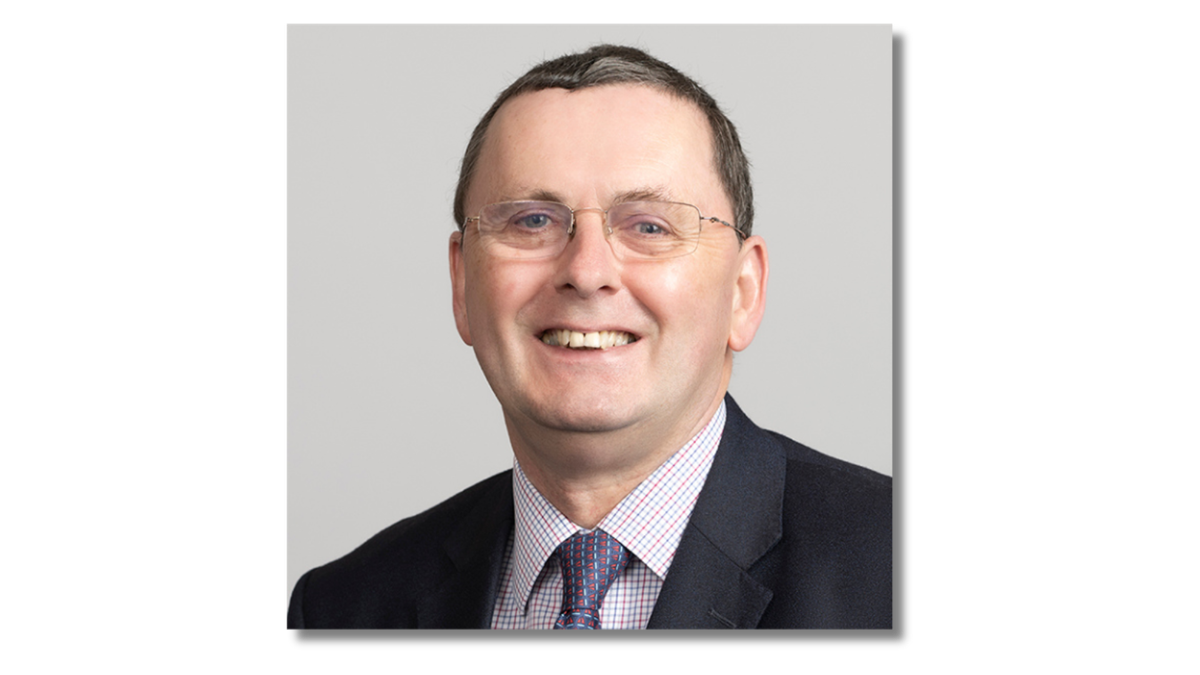
David Kidd first joined Mid Wynd in 2016 and assumed the role of chairman at the company’s Annual General Meeting in October 2024. He brings over four decades of investment management expertise, previously serving as chief investment officer for Royal Bank of Scotland's investment management division, Chiswell Associates, and Arbuthnot Latham. Beyond his management experience, David brings a wealth of boardroom wisdom to his new role as Mid Wynd chairman, concurrently serving as chairman of The Baillie Gifford Japan Trust, while he was also recently on the board at Martin Currie Global Portfolio Trust.
Senior Non-Executive Independent Director: Hamish Baillie
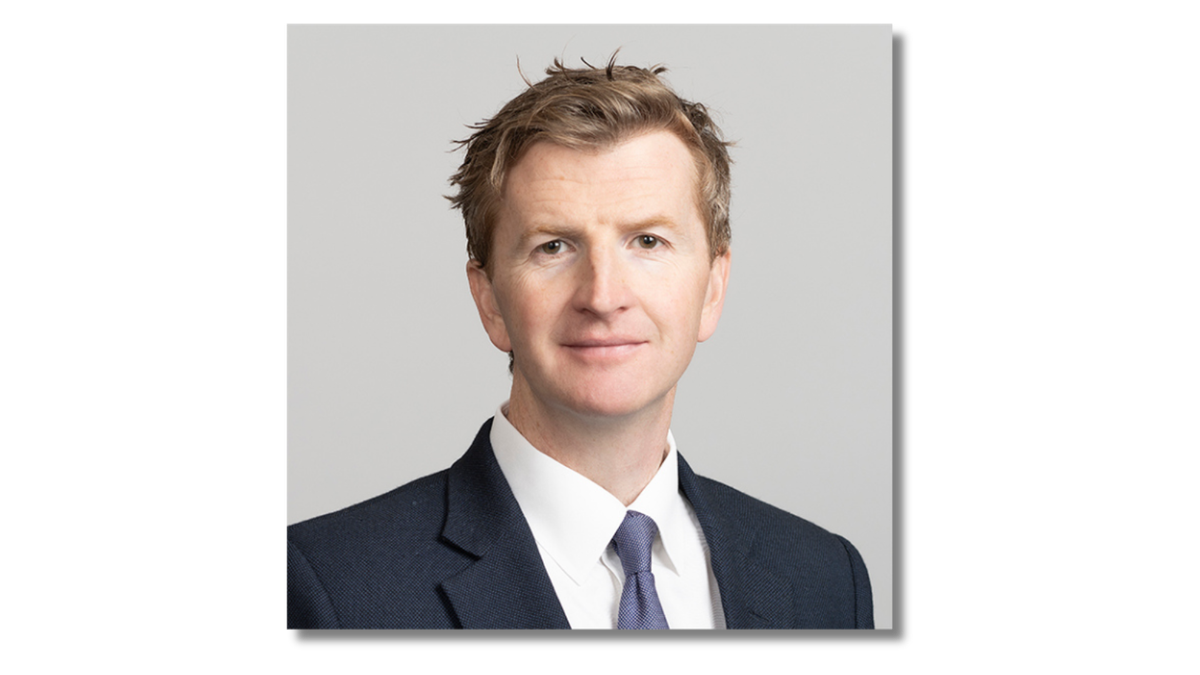
Hamish Baillie joined the Mid Wynd board in November 2022 and was appointed as senior non-executive independent director in November 2024. He previously worked at Ruffer LLP, where he became a partner in 2006 and managed their investment trust from 2011 until 2022. Hamish brings portfolio management and investment expertise to the board, with recent experience of managing an investment trust and communicating with shareholders and wider stakeholders. He is also the senior independent director at Biotech Growth Trust.
Non-Executive Independent Director: Diana Dyer Bartlett
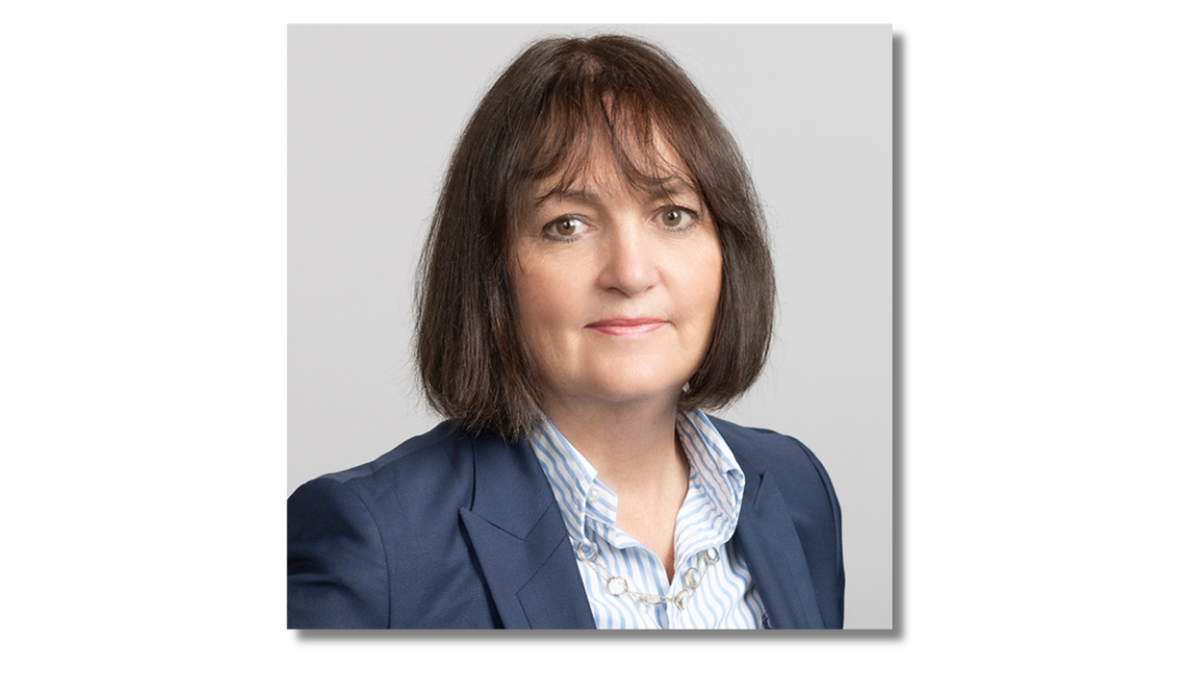
Diana Dyer Bartlett joined the Mid Wynd board in February 2020, becoming non-executive independent director and Chair of the Audit Committee. She brings decades of experience in private equity, with previous roles as finance director across a range of sectors including software, financial services, renewable energy, and coal mining. Diana is also a qualified chartered accountant and has held a number of accountancy and secretary positions in investment banking. Back in the investment trust world, she currently holds the position of chair at Smithson Investment Trust, and is also a senior independent director and chair of the audit and risk committee of Schroder British Opportunities Trust.
Non-Executive Independent Director: Anulika Malomo
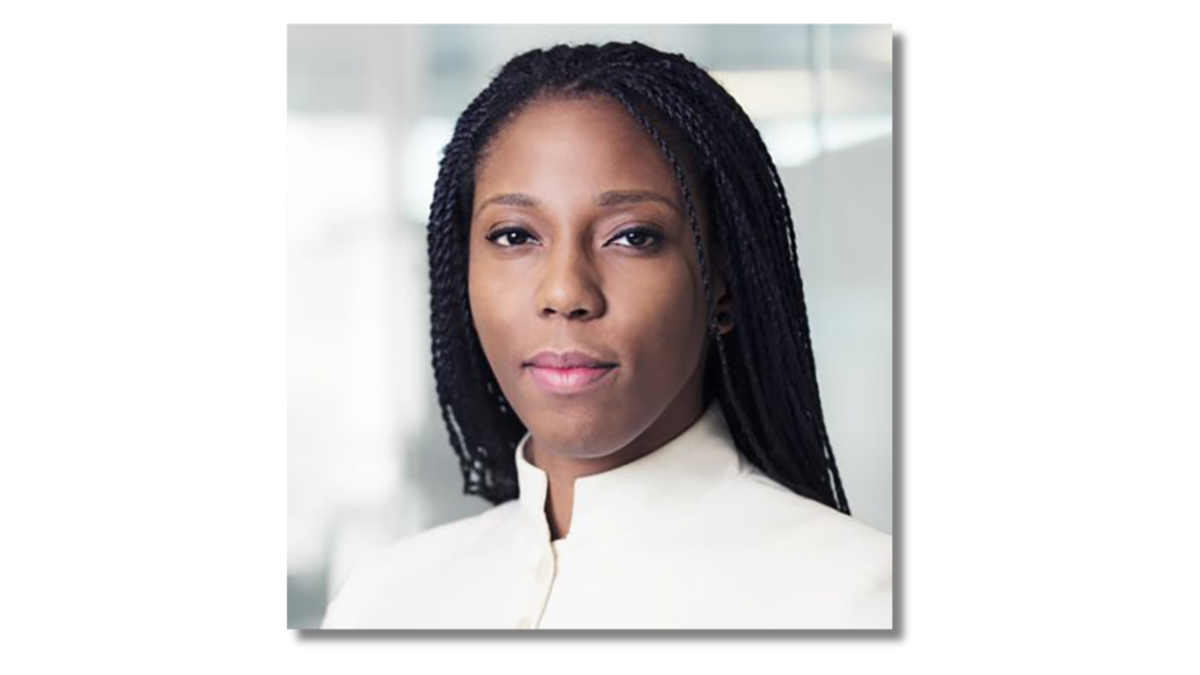
Anulika Malomo was appointed as non-executive independent director at Mid Wynd in October 2024. Her investment management expertise includes advising on EMEA portfolios, a skill she also utilises as a non-executive director at HarbourVest Global Private Equity Limited. Prior to this, Anulika also garnered extensive investment experience in private equity and investment banking roles at Lehman Brothers and Goldman Sachs. Outside the boardroom, Anulika’s passion for social mobility issues led her to establish The Sequoia Platform, an educational charity focused on young people in the United Kingdom, and she was formerly chair of the board of governors at the University of East London.
Non-Executive Independent Director: Alan Scott
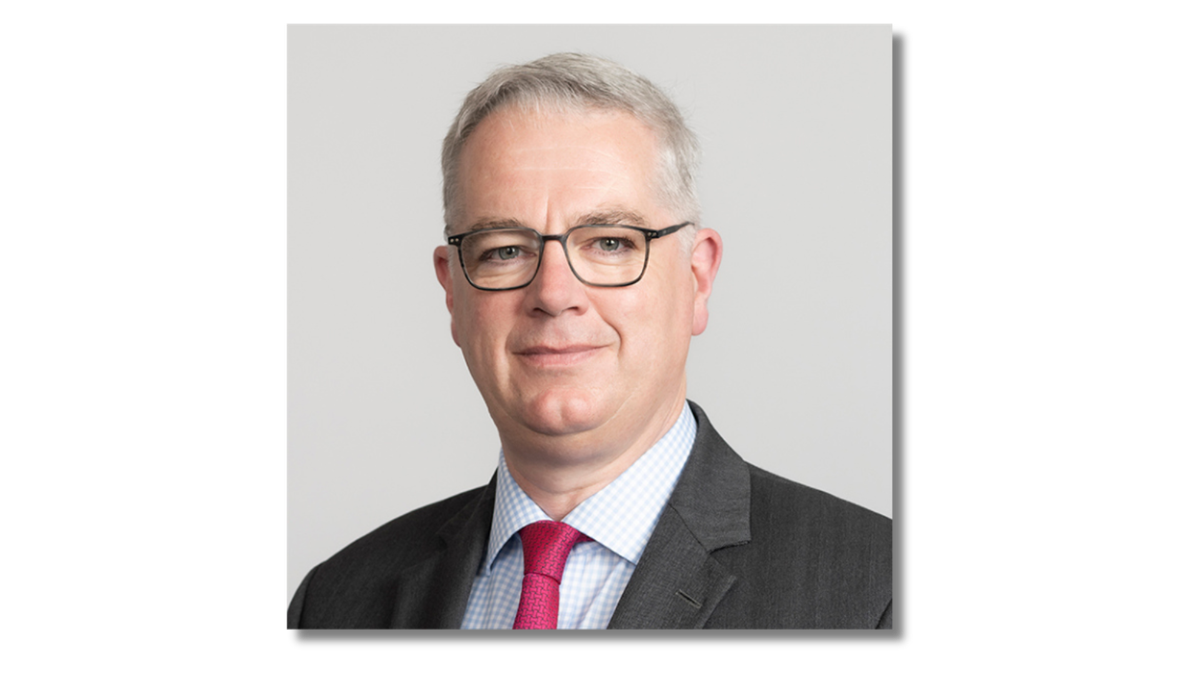
Alan Scott became a member of the Mid Wynd board in 2012 and is the great-great-great-grandson of David Scott, to whom the origins of the trust date back. David Scott founded a Scottish textile business in 1797, with a flax warping mill in Mid Wynd, near Dundee. The business flourished and later expanded to trade globally in linen, cotton, and jute, before the establishment of the investment business. Alan boasts several decades’ experience in the banking sector, with almost 40 years with the NatWest Group and, more recently, Coutts & Co. Prior to that, he was Head of Banking Services at Adam & Company. His career has spanned both the corporate and personal banking divisions, as well as offshore departments with Adam & Company International and Royal Bank of Scotland International in Guernsey. Alan is a member of the Chartered banker Institute where he holds Chartered Banker status.
Team effort behind Mid Wynd’s success
Mid Wynd’s board of directors operates as a cohesive unit, pooling their diverse skills and experiences to drive thorough, conscientious decision-making on behalf of shareholders. They meet regularly to review the trust’s investment strategy, discuss market trends, and evaluate portfolio performance. This proactive collaboration enables the board to adapt quickly to changing market conditions while upholding the trust’s long-term goals.
Commenting on the make-up of the board of directors, Kidd told us: “I’ve been on the board for eight years now – no one is shy in terms of offering their view on what we are discussing. We asked Anulika to join the board because she brings a different perspective to the group. That’s going to be additive. Like with portfolios, we believe in “diversification”. We think this helps the board come to the best decisions on behalf of shareholders.”
What sets Mid Wynd apart?
In a world in which consumer investment is increasingly favouring passive management, we asked Kidd what role an actively managed trust, such as Mid Wynd, plays in an investor’s portfolio:
“The advantage of active portfolios is that you have the flexibility to select which companies you invest in - investments that are not overvalued, have good long-term prospects and are not simply a reflection of the latest fad in markets. We appointed Lazard Asset Management because we felt they had a robust investment philosophy that we believe will deliver results over time.
“An actively managed trust offers significant value in an investor's portfolio, in our view, allowing significant scope for enhanced alpha generation and risk management. Active management is better placed to navigate complexities and capitalise on market inefficiencies".
And in a crowded market, where there are a number of competitors which claim to have a similar mix of assets, we asked Kidd to elaborate on Mid Wynd’s USP. What makes it stand out from the crowd for investors looking for global quality growth investments?
“Lazard Asset Management’s Quality Growth approach is well-defined, and we believe it will serve shareholders over the long term. We have appointed highly experienced investment managers, with a proven track record in quality growth investing, backed by a depth of proprietary research. The way in which quality is defined and identified is highly differentiated and clearly explained:
“Mid Wynd invests in companies that are typically leaders in their market segments, companies with barriers to competition that allow them to sustain high returns on capital, and companies with reinvestment opportunities that serve as the foundation for future growth".
---
Risks
The value of your investment may rise or fall, and your capital is at risk.
Certain information contained herein constitutes “forward-looking statements” which can be identified by the use of forward-looking terminology such as “may,” “will,” “should,” “expect,” “anticipate,” “target,” “intent,” “continue,” or “believe,” or the negatives thereof or other variations thereon or comparable terminology. Due to various risks and uncertainties, actual events may differ materially from those reflected or contemplated in such forward-looking statements.
The securities mentioned are not necessarily held by Lazard for all client portfolios, and their mention should not be considered a recommendation or solicitation to purchase or sell these securities. It should not be assumed that any investment in these securities was, or will prove to be, profitable, or that the investment decisions we make in the future will be profitable or equal to the investment performance of securities referenced herein. There is no assurance that any securities referenced herein are currently held in the portfolio or that securities sold have not been repurchased.
Any investment in an investment trust involves risk. You should be aware of the following risks when considering investing:
Past performance
Past performance is not a reliable indicator of future returns and does not guarantee future results.
The value of your investment
The value of shares, and any income from them, can fall as well as rise and investors may not get back the amount invested.
Market volatility risk
The value of the Company and any income from it can fall or rise because of movements in stock markets, currencies and interest rates, each of which can more irrationally and be affected unpredictably by diverse factors, including political and economic events.
Emerging and Developed Markets
Emerging and developing markets can face significant political, economic or structural challenges. The portfolio may experience delays in buying, selling and claiming ownership of investments and there is an increased risk that the portfolio may not get back the money invested.
Concentrated
In view of the concentrated nature of the portfolio, the level of risk is expected to be higher than for broader based portfolios and the value may be more volatile.
Smaller companies
Securities of smaller companies may be less liquid, and exhibit more volatile returns, than the securities of larger companies.
Currency risk
The Company’s assets may be priced in currencies other than the fund base currency. Changes in currency exchange rates can therefore affect the Company’s value.
Charges from capital risk
Where charges are taken wholly or partly out of the Company’s capital, distributable income may be increased at the expense of capital, which may constrain or erode capital growth.
Leverage risk
The Company may operate with a significant amount of leverage. Leverage occurs when the economic exposure created by the use of derivatives is greater than the amount invested. Leverage may result in large fluctuations in the Company’s value and therefore entails a high degree of risk including the risk that losses may be substantial.
Important Information
Shares in the Company are a form of equity investment.
This information has been issued and approved by Lazard Asset Management Limited (“Lazard”), 50 Stratton Street, London W1J 8LL. Lazard is investment manager to Mid Wynd International Investment Trust plc (the “Company”) and is authorised and regulated by the Financial Conduct Authority.
This is a marketing communication and does not in any way constitute investment advice or an offer or invitation to deal in securities.
Further information about the Company, including a Key Information Document, is available on the Company’s website www.midwynd.com (http://www.midwynd.com).
Before investing, potential investors should also read the Company’s Investor Disclosure Document.
Forecasted or estimated results do not represent a promise or guarantee of future results and are subject to change. Past performance is not a reliable indicator of future results.
The value of investments and the income from them can fall as well as rise and you may not get back the amount you invested.
Investments in securities, derivatives and commodities involve risk, will fluctuate in price, and may result in losses.
Certain assets held in Lazard’s investment portfolios may trade in less liquid or efficient markets, which can affect investment performance.
There can be no assurance that the Company’s objectives or performance target will be achieved. Any investment is subject to fees, taxation and charges within the Company and the investor will receive less than the gross yield.
MSCI makes no express or implied warranties or representations and shall have no liability whatsoever with respect to any MSCI data contained herein. The MSCI data may not be further redistributed or used as a basis for other indexes or any other securities or financial products. This report is not approved, reviewed or produced by MSCI.
Further Information
Tax Rates
The tax treatment of each investor will vary, and you should seek professional tax advice. The contents of these materials are confidential and should not be disclosed other than to the person or persons for whom it is intended.
Regulation
The Company is listed on the London Stock Exchange and is not authorized or regulated by the Financial Conduct Authority.
Information Subject to Change
The information and opinions expressed here are as of the published date and are subject to change without notice.
Non-Mainstream Pooled Investment (NMPI) status
The Company currently conducts its affairs so that its shares in issue can be recommended by financial advisers to ordinary retail investors in accordance with the Financial Conduct Authority’s (“FAC’s”) rules in relation to non-mainstream investment products and intends to do so for the foreseeable future.
Shares in Mid Wynd International Investment Trust plc are excluded from the restrictions in the FCA rules which apply to non-mainstream pooled investment products, because they are shares in an investment trust.
The shares in the Company may also be suitable for institutional investors who seek a combination of capital and income growth.
Private investors should consider consulting an independent financial adviser who specialises in advising on the acquisition of shares and other securities, before acquiring shares. Investors should be capable of evaluating the risks and merits of such an investment and should have sufficient resources to bear any loss that may result.




